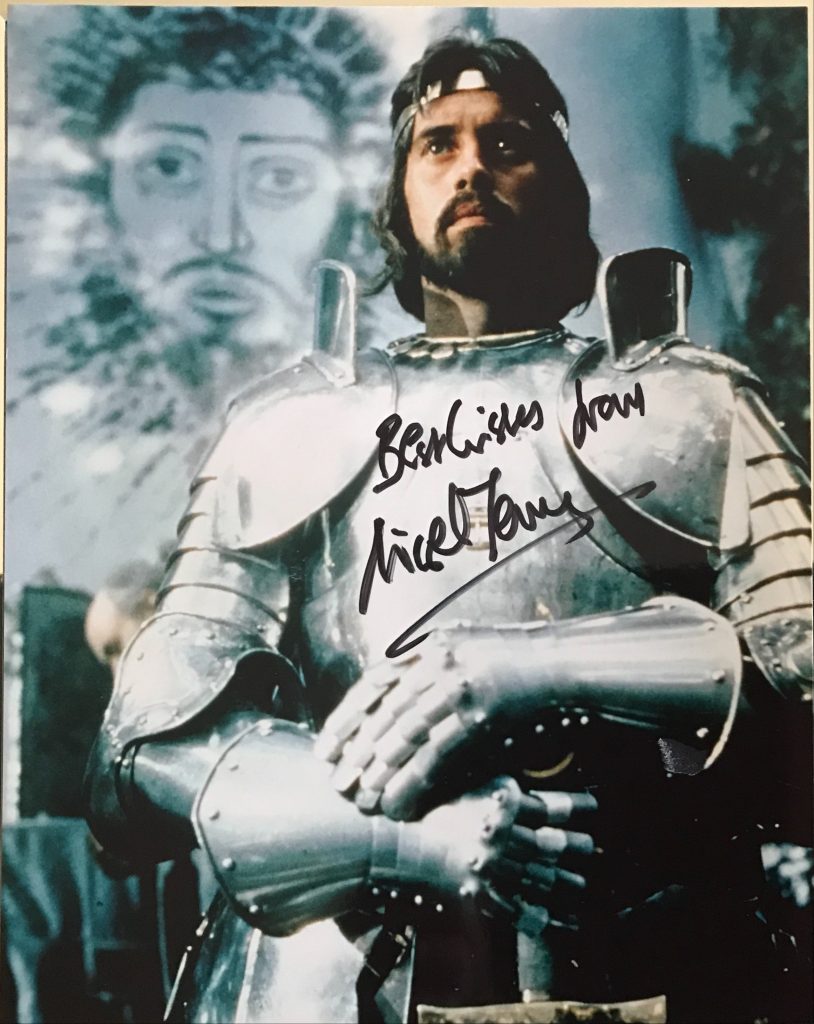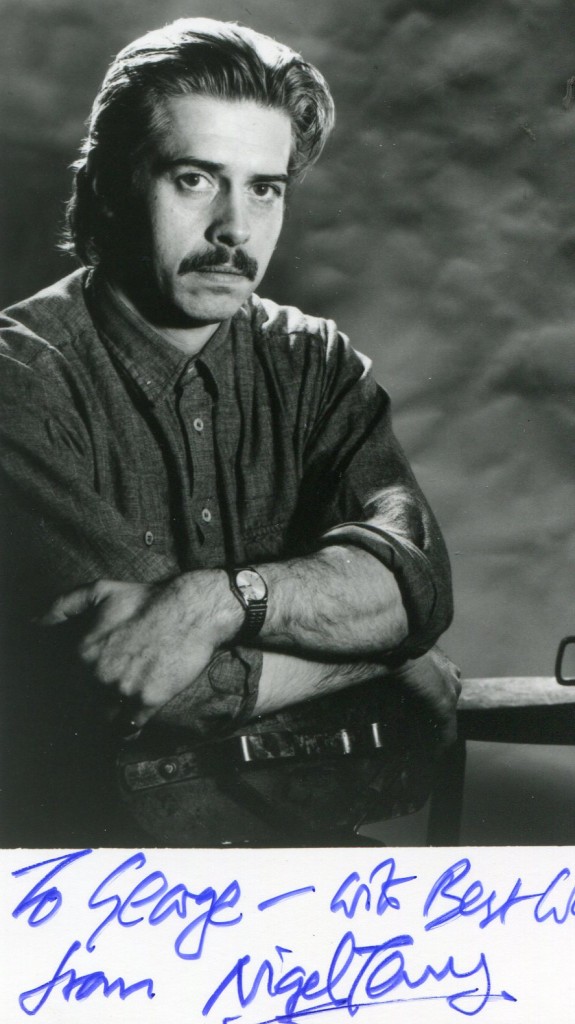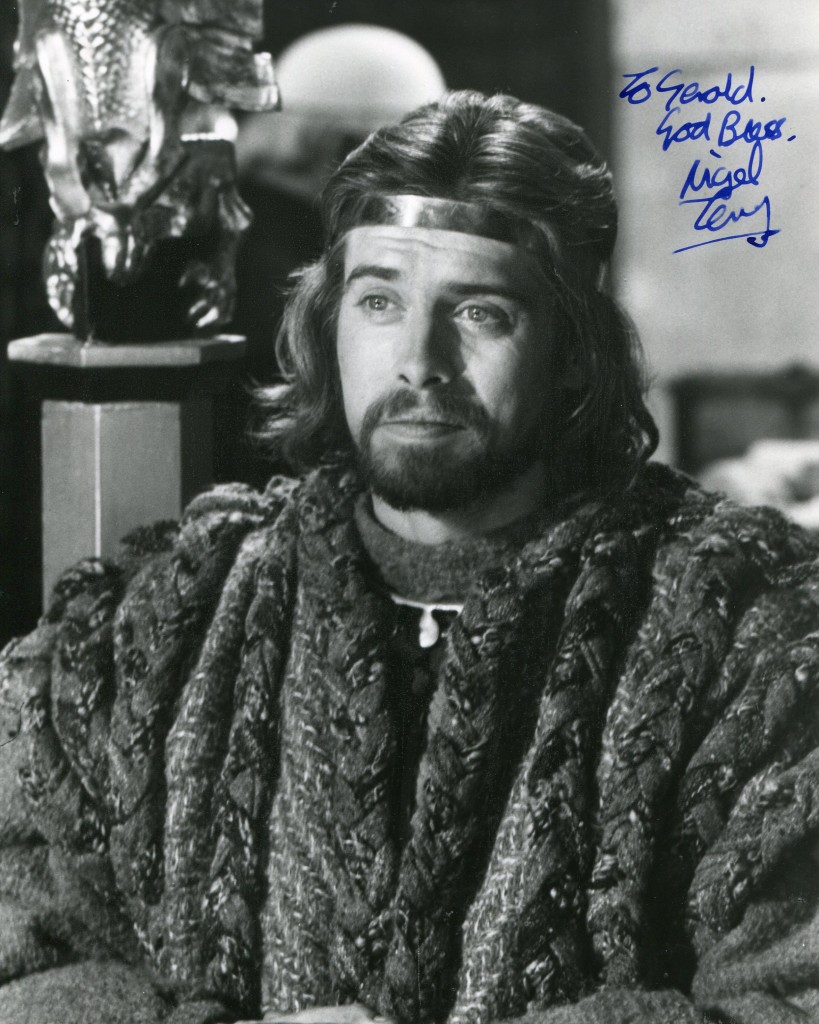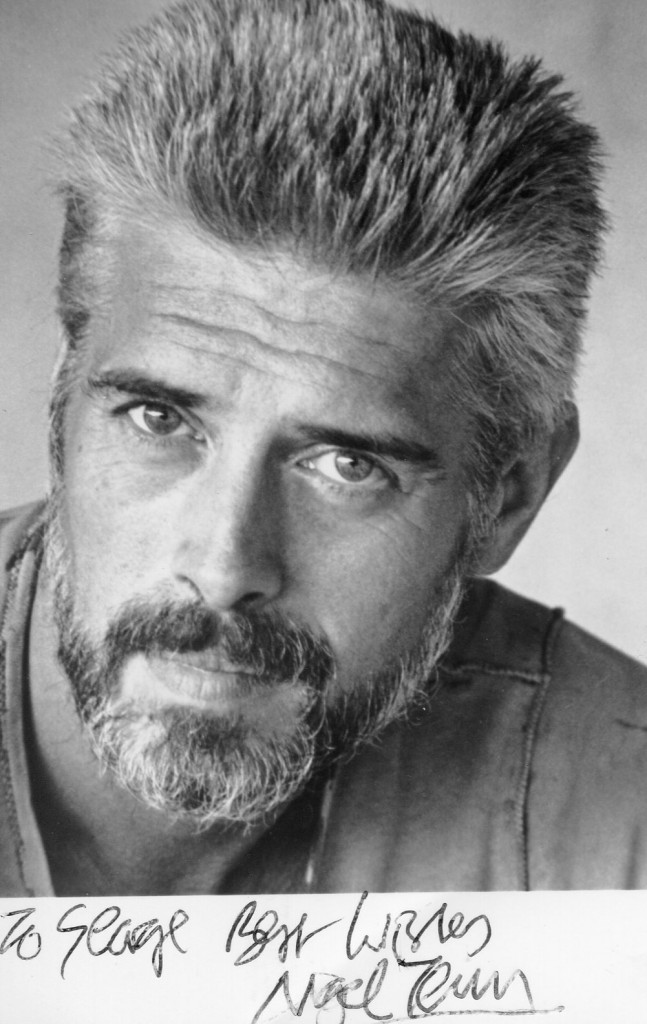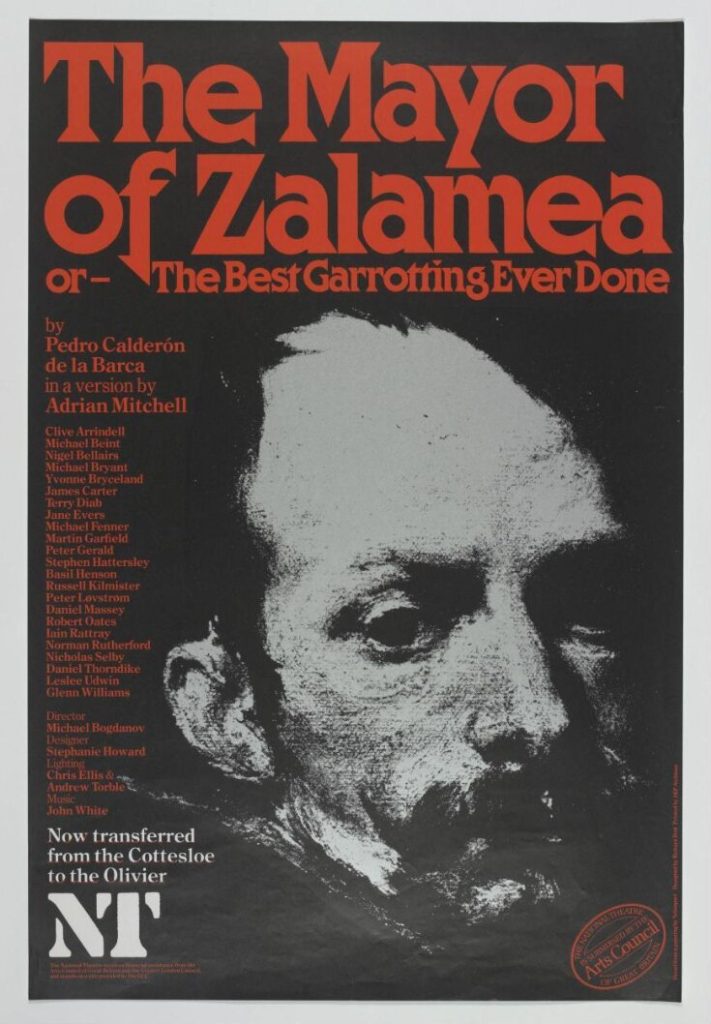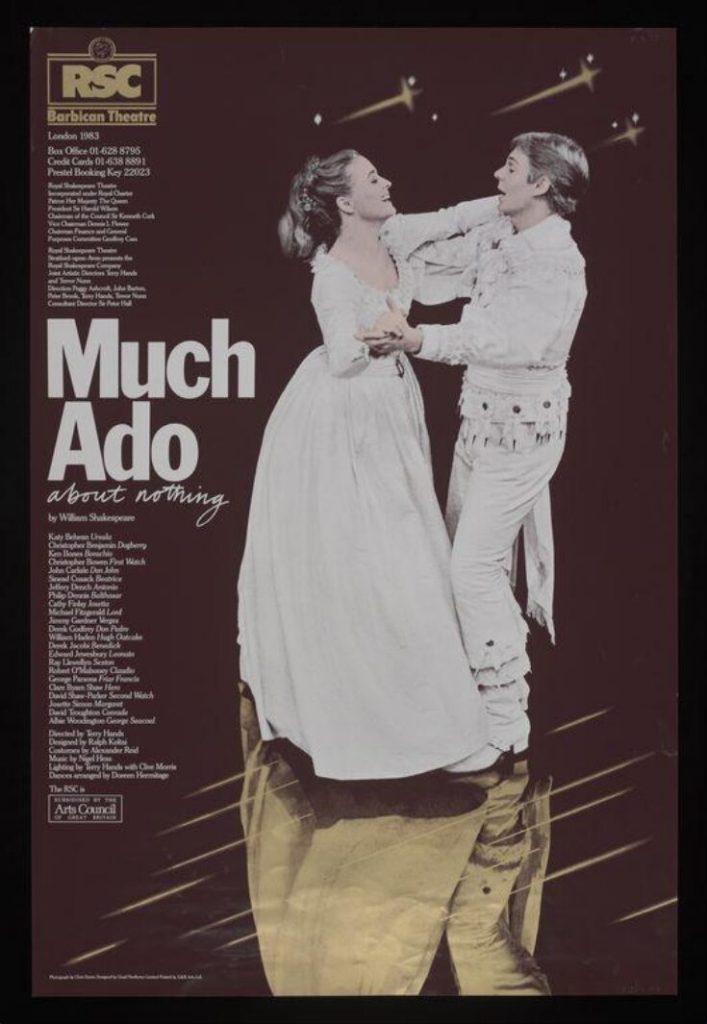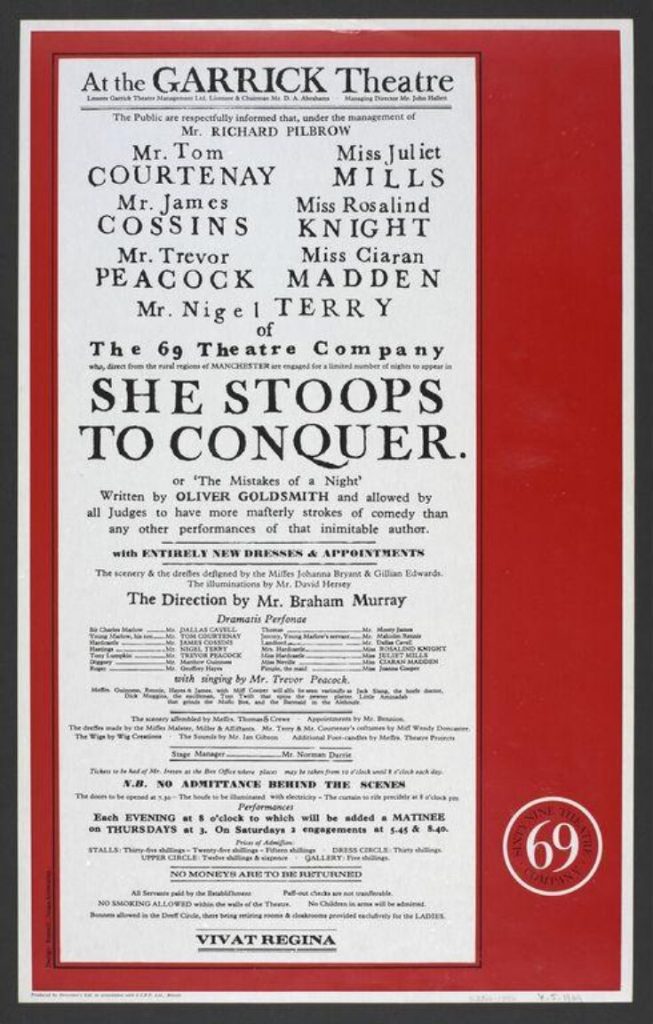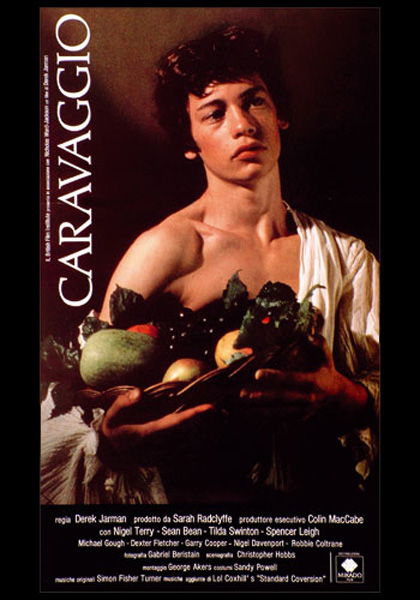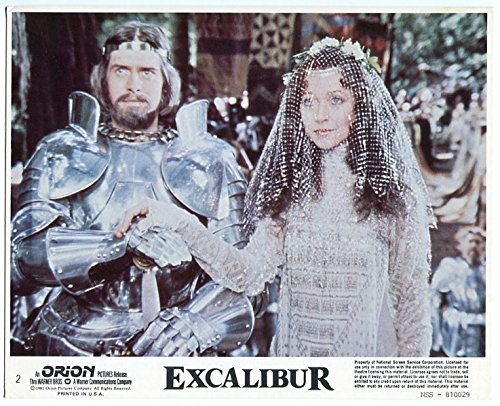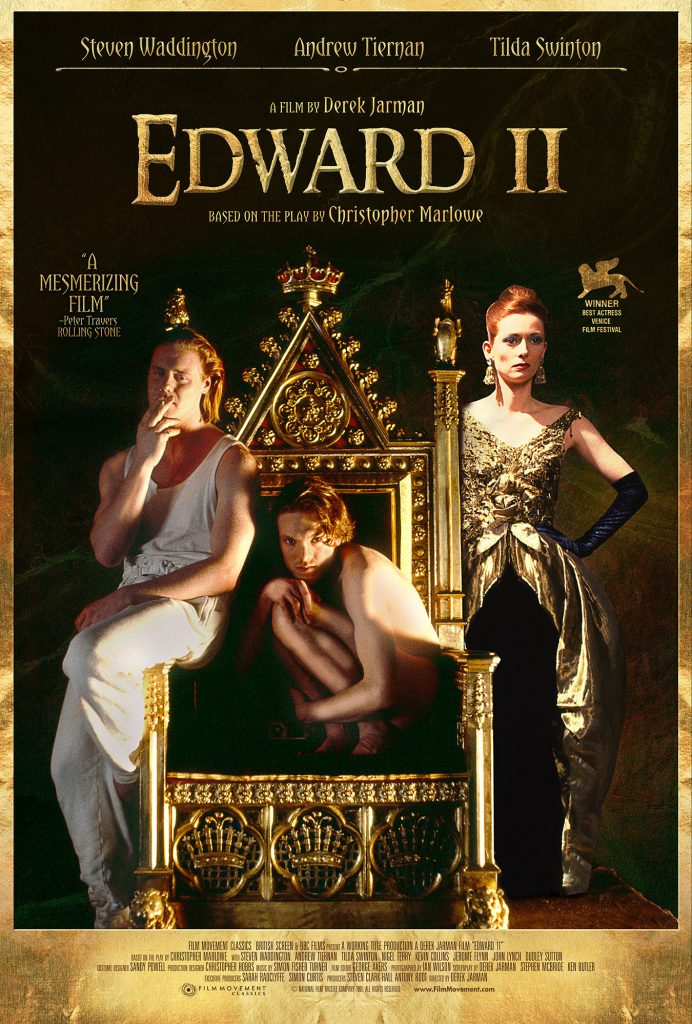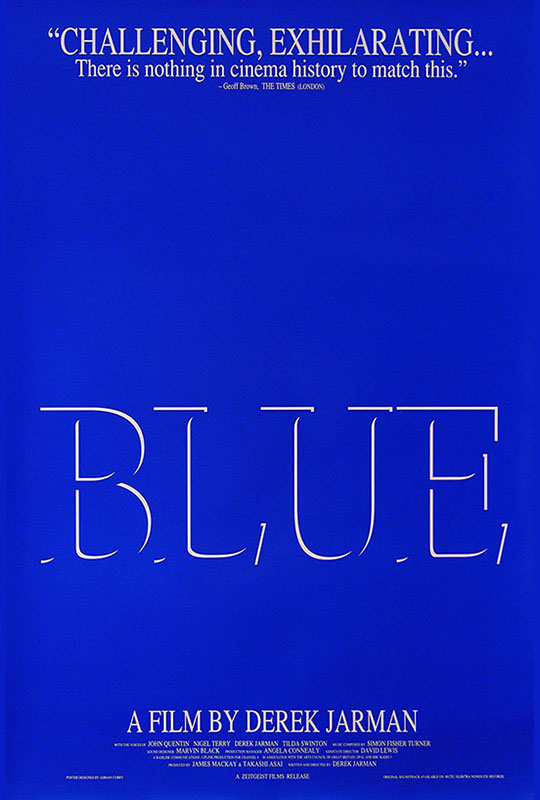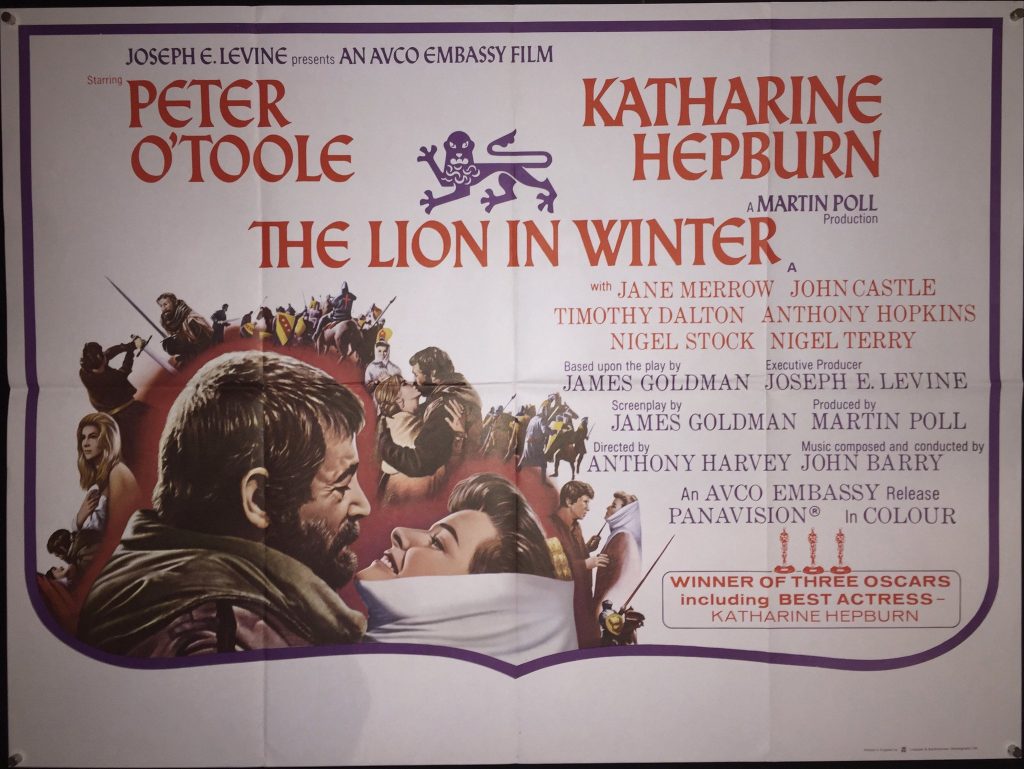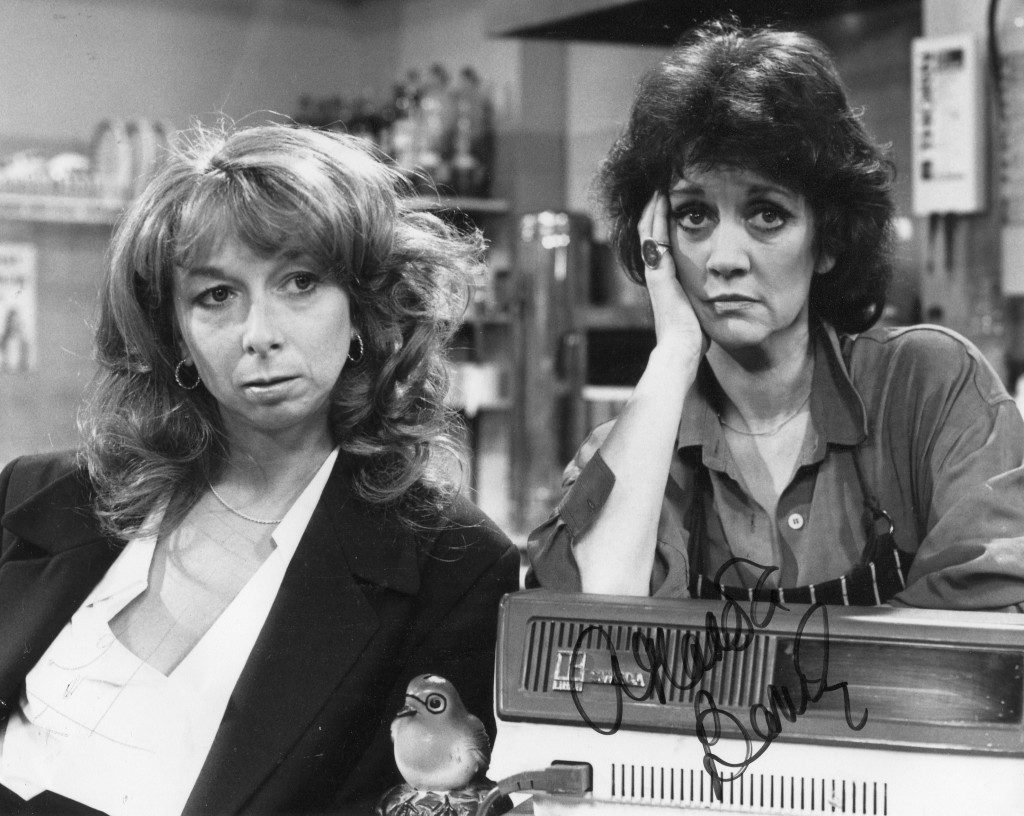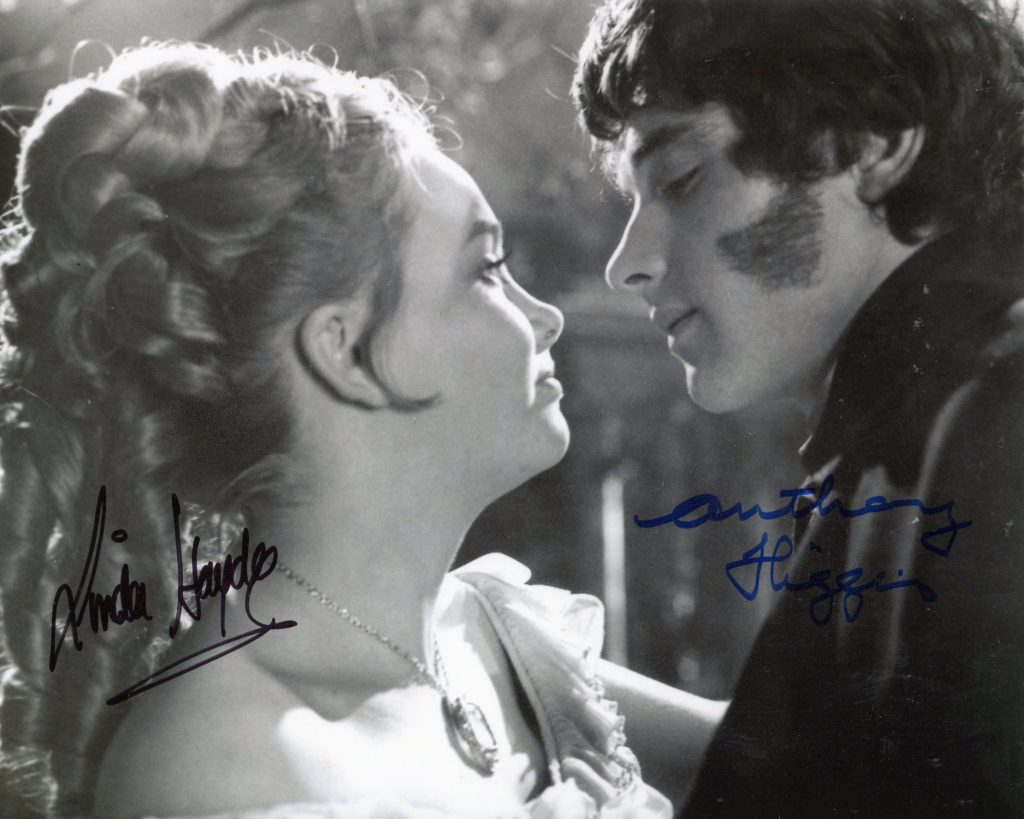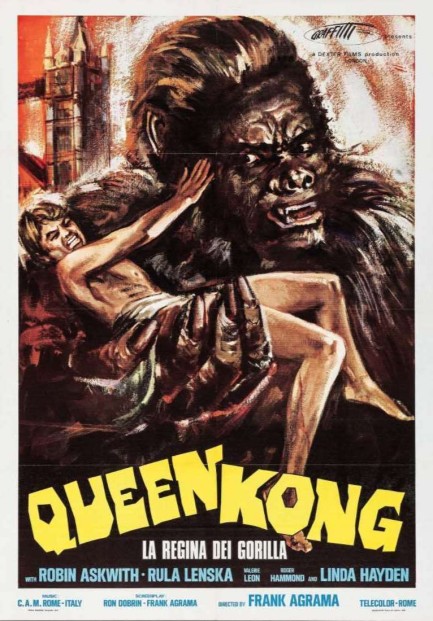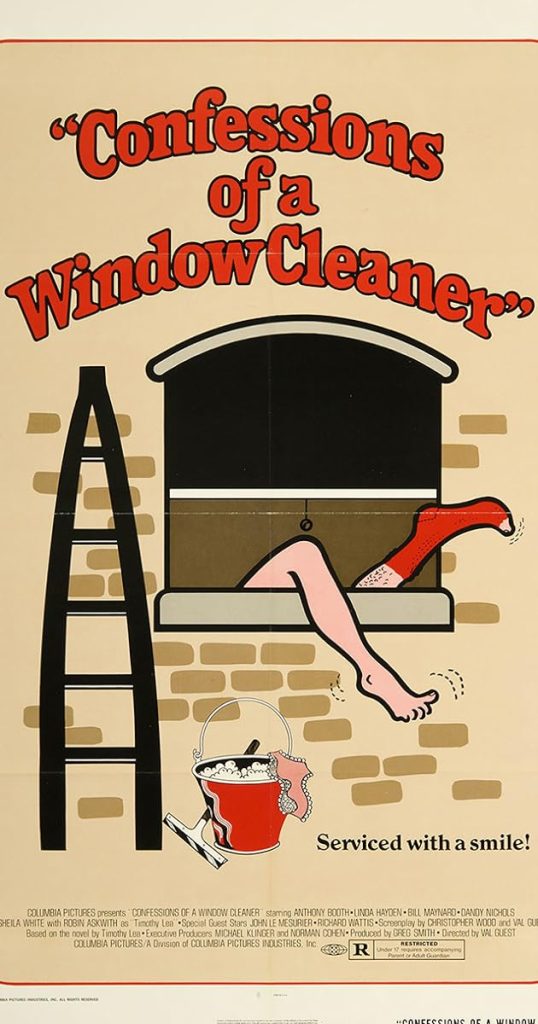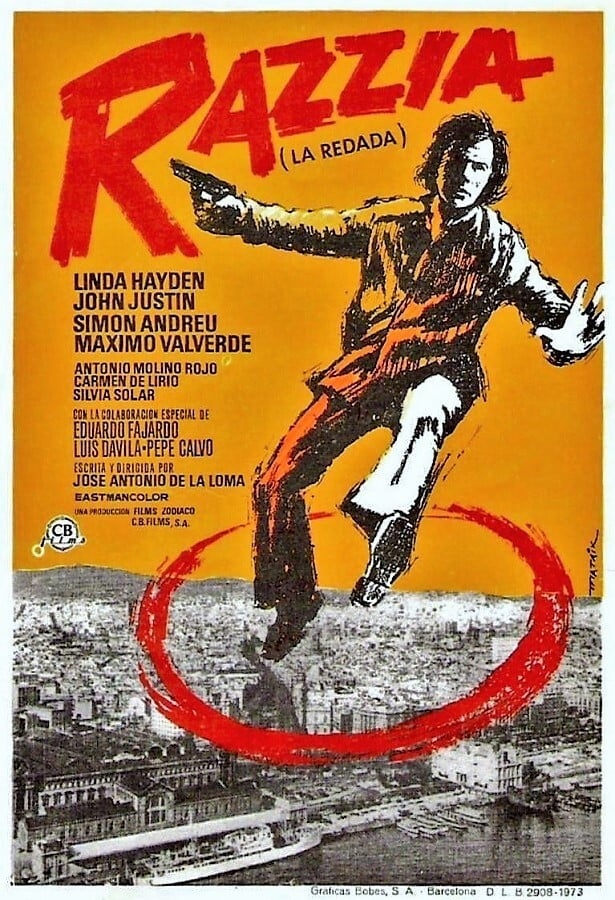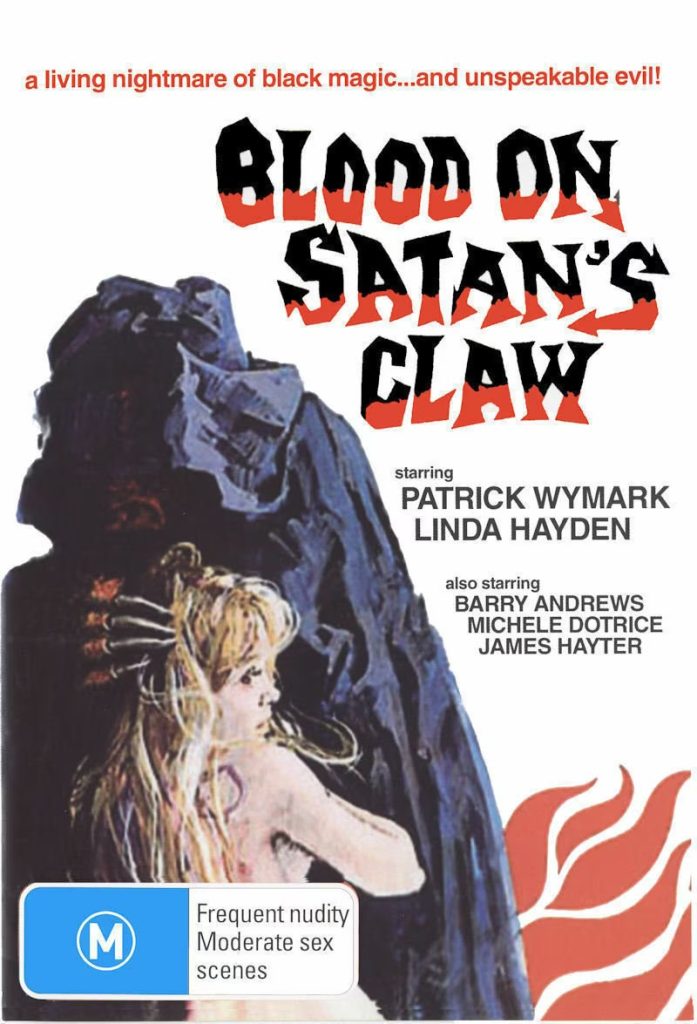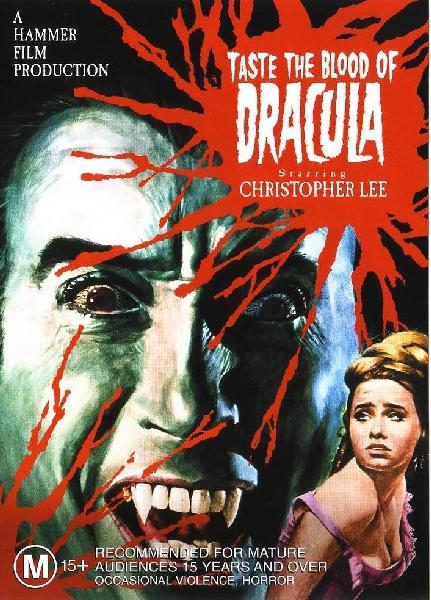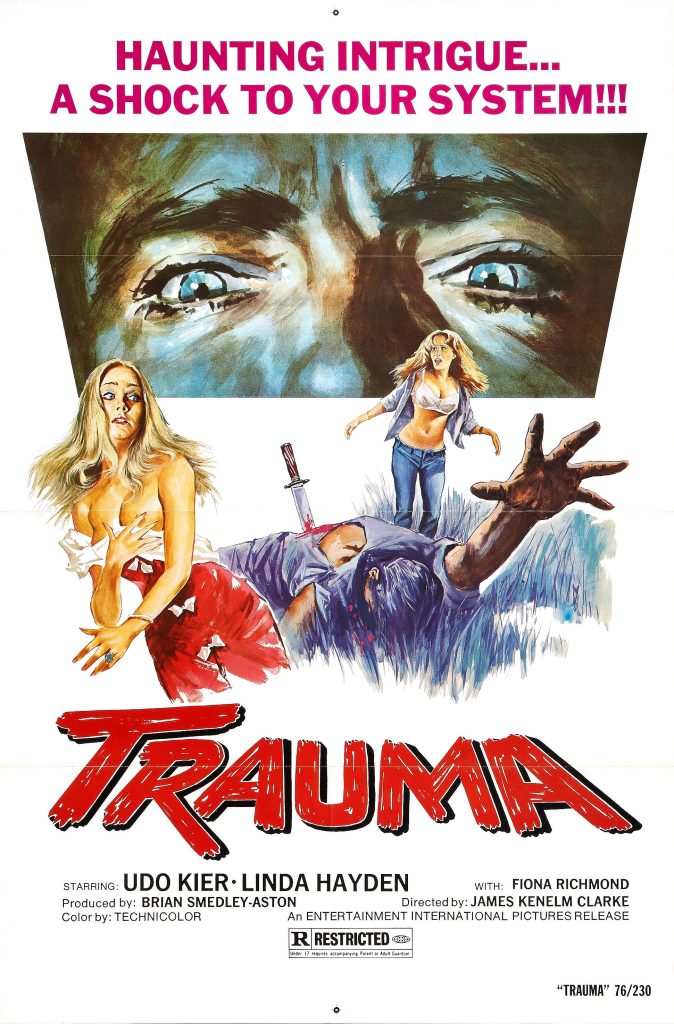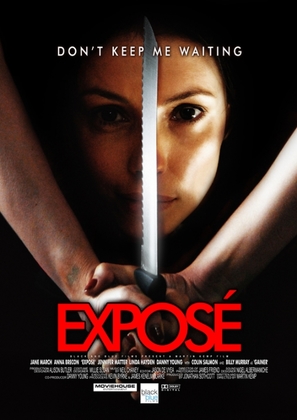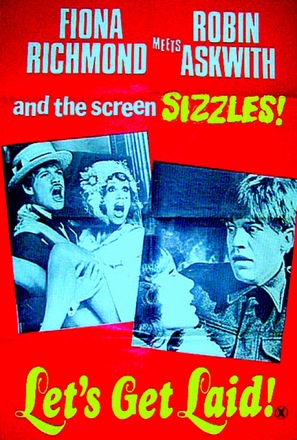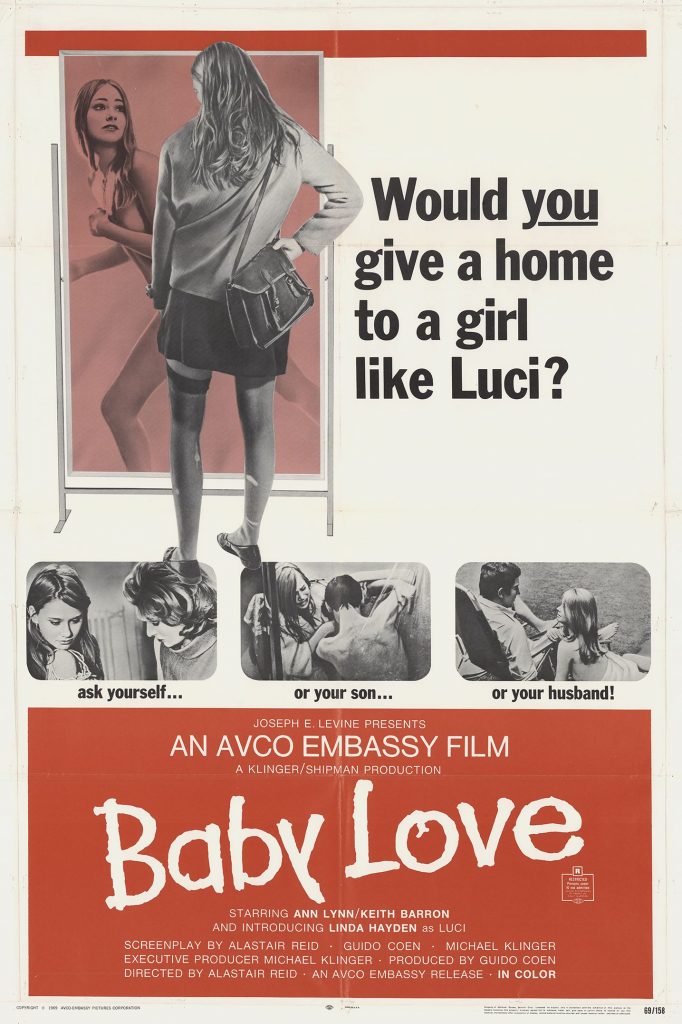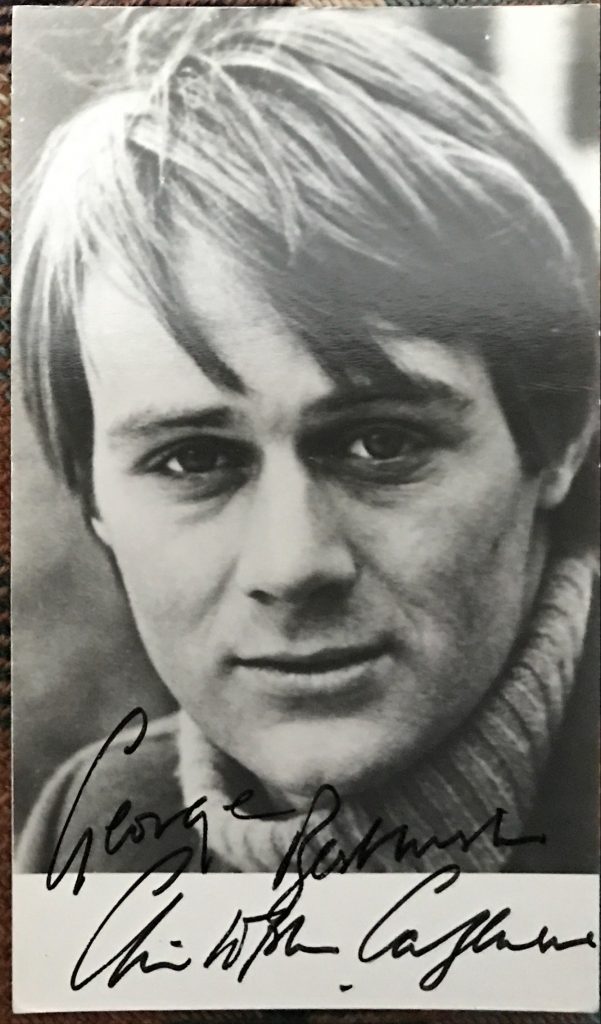
Bryan Forbes obituary in “The Guardian” in 2013.
Bryan Forbes was born in 1926 in West Ham, London. After military service from 1945 until 1948 he began a career as a supporting actor in British films including 1955’s “The Colditz Story”. His other films as an actor include “The League of Gemtlemen” with Jack Hawkins and Kieron Moore and “Sea Devils” with Rock Hudson, Maxwell Reed and Yvonne de Carlo. He made his directorial debut in 1961 with “Whitsle Down the Wind” with Alan Bates and Hayley Mills. His other films as a director ing Rat”, “The Stepford Wives” and “The Slipper and the Rose”. He was married for a time to the Irish actress Constance Smith and then married to Nanette Newman. He died in May, 2013.
Dennis Barker’s “Guardian” obituary:
The director, actor and writer Bryan Forbes, who has died aged 86, was one of the most creative forces in the British film industry of the 1960s, and the Hollywood films he directed included the original version of The Stepford Wives (1974). In later life he turned to the writing of books, both fiction and memoirs.
The turning point for him in cinema was the formation of the independent company Beaver Films with his friend Richard Attenborough in 1958. For the screenplay of their first production, The Angry Silence (1960), Forbes received an Oscar nomination and a Bafta award. Attenborough played a factory worker shunned and persecuted for not joining a strike. His colleagues are shown as being manipulated by skulking professional agitators and to some it seemed more like a political statement than a human story about the crushing of an individual.
Forbes then wrote and/or directed a string of notable British productions. He both wrote and took the part of one of the disaffected officers turning to crime in The League of Gentlemen (1960), and directed Whistle Down the Wind (1961), about children who mistake a convict on the run for Jesus. He took a novel by Lynne Reid Banks as the basis for The L-Shaped Room, which he also directed, and one by Kingsley Amis for Only Two Can Play (both 1962). He provided the screenplay for and directed Seance on a Wet Afternoon (1964), concerning the sinister abduction of a child, and The Whisperers (1967), in which Edith Evans was outstanding as a lonely old woman.
For Hollywood, Forbes scripted and directed King Rat (1965), a thoughtful study of British and American soldiers in a Japanese prisoner of war camp. It was a critical success and did well commercially – except in America.

Other Hollywood work arrived, but in 1969 Forbes accepted the offer of the impresario Bernard Delfont, then with EMI, to run Elstree Film Studios, which the company had taken over. This amounted virtually to an attempt to revive the ailing British film industry by instituting a traditional studio system with a whole slate of films in play, one of which happened to be from my political novel Candidate of Promise. However, some EMI executives raised difficulties over Forbes both heading the studio and directing his own film, The Raging Moon (1971), starring his wife Nanette Newman as a woman paralysed from the waist down who finds love.
One success of the venture was the production of The Railway Children (1970), but most of the announced films – including Candidate of Promise – were never made. Forbes, who had a three-year contract, left after two years, complaining privately that for the first time in his life he had made powerful enemies. Delfont’s explanation to me was that Forbes lacked business and organisational skills: “My mistake was not to see that he was creative, but only creative.”
For The Stepford Wives, William Goldman provided a screenplay from the surreal novel by Ira Levin, with Newman as the figure who became the computerised fantasy of boorish men in a small American town. The final Hollywood film that Forbes directed was The Naked Face (1984), with Roger Moore as a psychiatrist who gets caught up with the Chicago mafia. His last screenwriting credit came with Attenborough’s Chaplin (1992).

Forbes was born John Clarke into a working-class home in West Ham, east London. His cultural horizons were extended when he was evacuated during the second world war to Cornwall and stayed in Porthleven with the Rev Canon Gotto, a cultivated cleric with an enormous library. Forbes said that Gotto and his wife “gave me a grounding I wouldn’t have had otherwise”.
Another mentor was the BBC radio producer Lionel Gamlin, who made him question master of the Junior Brains Trust, and advised adopting his stage name of Bryan Forbes. (The actor John Clark, who portrayed Just William on radio for the BBC, had already registered his name with Equity.) Though he got to the Royal Academy of Dramatic Art at 17, Forbes thought he was seen as too short and too “working-class” to play juvenile leads. He worked in repertory theatre, and had just taken over a part in Terence Rattigan’s Flare Path when he was called up for second world war service, first in the Intelligence Corps and then the Combined Services Entertainment Unit.
A published collection of short stories, Truth Lies Sleeping (1951), pointed to his promise as a writer, but his initial course was to continue acting. Presciently, he wrote to a friend while at a repertory company: “One day I shall direct a film – preferably a film of one of my own scripts.” He also took supporting film roles when possible. His first film appearances had included Michael Powell and Emeric Pressburger’s The Small Back Room, and the comedy Dear Mr Prohack (both 1949), the latter adapted from an Arnold Bennett novel.
In the early 1950s, he went to Hollywood with the actor who was briefly his first wife, Constance Smith. But it was not long before he returned to Britain and undertook the rewriting of scripts as well as acting. In 1954 he had a part in Guy Hamilton’s film of JB Priestley’s play An Inspector Calls and the following year he starred in the same director’s classic war film The Colditz Story, whose cast included John Mills and Lionel Jeffries. He met his second wife, Newman, while playing a man being run over by a train. They got married in 1955.

When he returned to writing books, it was with wry fiction about the tribulations suffered by the creative spirit in showbiz, The Distant Laughter (1972) and The Rewrite Man (1983). Ned’s Girl (1977) was a biography of Evans, and That Despicable Race (1980) concerned actors as a breed. Later novels were mostly about spies, though sometimes embraced comedy, as with Partly Cloudy (1995), about domestic disasters brought about by the clash of the generations during one traumatic weekend.
Forbes was a founder of the Writers’ Guild of Great Britain; with Attenborough he helped form Capital Radio, the London station launched in 1973; and he served as president of the National Youth Theatre. He wrote with incomparable irony about the bizarre workings of the film industry in his two volumes of autobiography, Notes for a Life (1974) and A Divided Life (1992). In 2004 he was appointed CBE.
He is survived by Newman and their daughters, Emma and Sarah.
• Bryan Forbes (John Theobald Clarke), actor, director and writer, born 22 July 1926; died 8 May 2013
The above “Guardian” obituary can also be accessed online here.



